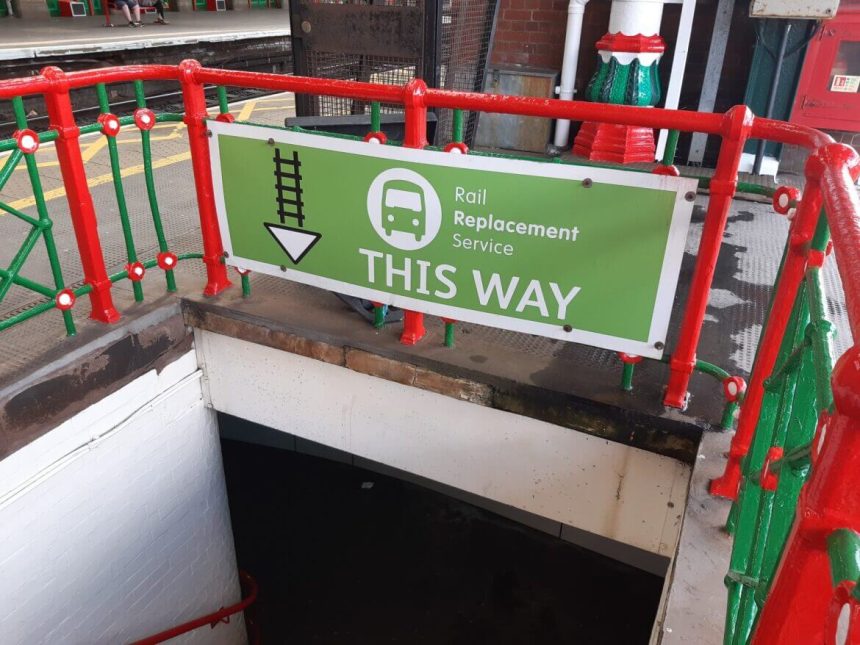Smaller coach operators have expressed concern that rail replacement work will be within scope for Public Service Vehicles (Accessible Information) Regulations (AIR) when the earliest deadline for compliance is reached on 1 October.
The Confederation of Passenger Transport (CPT) and legal experts Backhouse Jones and JMW Solicitors have in recent weeks confirmed their beliefs that new rules concerning audio and visual information will apply to rail replacement, including using coaches, except where the service meets the “long distance” exemption.
A local service is defined as one with stops that are less than 15 miles apart when measured in a straight line. However, an exemption is in place for those services which qualify as “long distance”, which is defined as one with stops that are 15 miles or more apart measured in a straight line. Small buses that carry fewer than 17 passengers are exempt from AIR.
This could prove problematic for operators who do not run local bus services, especially smaller businesses for whom rail replacement work may form a relatively large percentage of operations.
Jamie Burrows, Director of Blandford Forum-based Burrows Coaches, says roughly half of his business’s revenue comes from rail replacement contracts. He believes the planned “regulations” are concerning for businesses like his and says he is currently uncertain of what it will mean for him.
“There are a lot of unknowns because we haven’t heard anything from the rail replacement companies at all,” he says. “There is a looming uncertainty of what costs are going to be involved with it and whether it is even worth us carrying on. A lot of us have built businesses around this work.”
Mr Burrows, who set up his business in 2020 and whose fleet of five coaches and buses is fully PSVAR-compliant, feels that smaller operators will struggle to meet the costs of complying with AIR. Small operators can apply for a share of a £4.65 million grant for upgrades, although Chair of ALBUM, Bill Hiron, told us in August 2023 he believed the funding may only be enough to refit around 460 buses.
Although the first deadline of October applies to vehicles which were first used to provide local services on or after 1 October 2019, further deadlines 12 and 24 months later respectively are in place for older vehicles. Among the information required is that detailing service name, direction or ultimate destination, and each stopping place.
The owner of another coach operator, who wished to remain anonymous, echoes concerns over the plight for smaller operators. He says: “Rail replacement work plays a big part of our business and we have invested heavily into PSVAR vehicles. Whilst we are continually looking at keeping the fleet up to date, one has to question where the money is coming from to keep up with the legislation.
“Sadly, I feel, like many small operators, we are being forced out as we do not have the financial resources like bigger companies.”
CPT will hold its latest Accessible Information Awareness session in Perth on 1 May. It is free to CPT members.



























